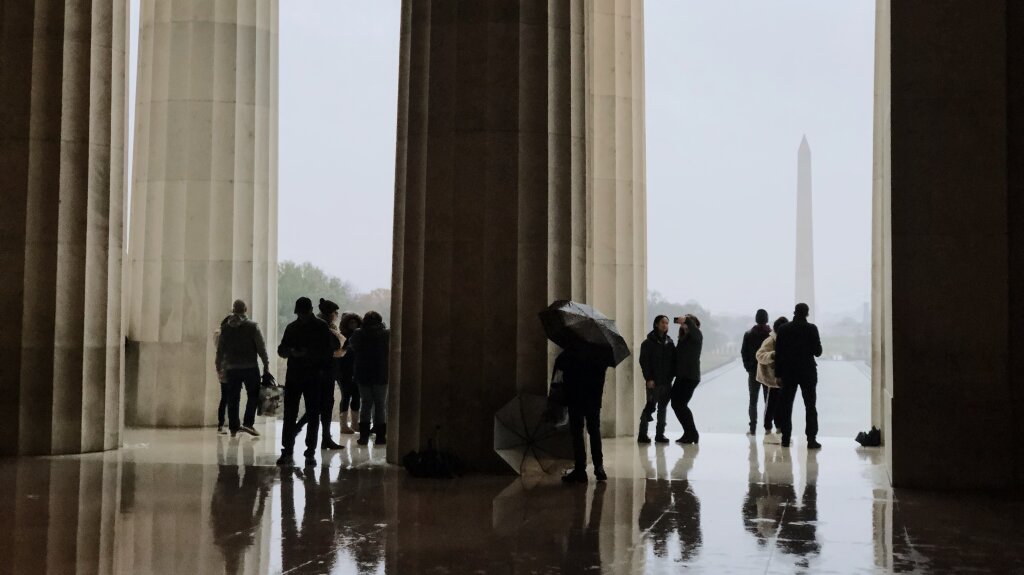By | 5 min
The Big Society Network defines the ‘big society' as a society in which individual citizens feel big: big in terms of being supported and enabled; having real and regular influence; being capable of creating change in their neighbourhood.
They see the core of the ‘big society'as three principles: empowering individuals and communities; encouraging social responsibility; and creating an enabling and accountable state.
But as ever, the devil is in the detail, and the complete lack of detail means that the ‘big society' is currently interpreted in widely varying ways and is in reality all things to all people.
To some it is a vehicle for the outsourcing of the public sector, shrinking of the state and a way of shifting responsibility from government to individuals. Left unchallenged there can be little doubt that this is the agenda that the government will pursue, to the detriment of workers, service users and society as a whole. But for others a very different script can be developed.
Taking the three core principles individually.
Firstly, empowering individuals and communities, here the Government talks of giving meaningful power to organisations to effectively challenge or defend the status quo on behalf of their voluntary members - a phrase that should sound very familiar to any trade union activist.
The trade union and labour movement including co-operatives, mutuals and friendly societies were all born of the fact that individual working people were not empowered, either with in their workplaces or with in the communities in which they lived. The identified solution to this was strength in unity. Alone, individuals were unable to challenge injustice and unfairness. Collectively their voice was strong and change was possible.
Secondly, encouraging social responsibility. At the heart social responsibility is the belief that organisations and individuals have an obligation to act to benefit society at large. This may be passively, by avoiding engaging in socially harmful acts, or actively, by performing activities that directly advance social goals.
One manifestation of this agenda is corporate social responsibility and there are endless examples where pressure from unions has pushed companies into taking a more responsible approach to their impact on society. Examples include ethical investment of pension funds, ethical procurement, greener workplaces, healthier, safer workplaces and, of course, decent pay, terms and conditions and pensions.
But trade unions and trade union members play a much wider role, working with government, the voluntary sector and others to improve the society in which we live. Trade unions are involved in campaigns on child poverty, climate change and civil liberties amongst many others.
This social responsibility also extends beyond our national borders with unions playing a key role in international development and solidarity. My union, the NASUWT, for example works with organisations in countries including Burma, Colombia and Zimbabwe.
Trade union reps are eight times more likely than the general population to engage in voluntary work and give more of their time to community organisations.
Unions in the Community: A TUC survey of union reps found that eight per cent of reps are school governors, and five per cent are trustees or sit on the governing bodies of local organisations. Some 19 per cent are volunteers in local community organisations, and 20 per cent of reps spend up to five hours a week on community activities.
Finally, creating an enabling and accountable state. As with much of the rhetoric around the 'big society', an ‘enabling state' sounds attractive. However, a much more worrying intent can be found beneath the headline. In the United States, the enabling state emerged as a description for a move from public to private provision for social protection.
In the UK this notion of the ‘enabling state' developed during the 1990s as an alternative to the welfare state. In particular it provided an umbrella term covering developments during the 1990s in health, social care and education in particular but including compulsory competitive tendering and a wide range of other initiatives. In other words, a repackaging of the agenda pursued by the Thatcher and Major governments of the past.
Accountability can come in two forms: democratic accountability and the accountability of market forces. The government's agenda is clearly geared towards the latter. Examples can be found across health and education of where local and national democratic accountability is being sacrificed in the name of choice. The Government's academies programme is a great example. Democratically led local authorities are written out of the script in education provision and the representative nature of governing bodies scrapped as schools are encouraged and coerced into becoming academies. Instead, accountability will be apparently be exercised by parents voting with their feet. Failing schools will close or be taken over with scant regarding for strategic planning, community cohesion or fairness.
The greatest risk in the government's advocacy of the ‘big society' is its all-encompassing nature but the current vagueness also offers an opportunity for the labour movement to set the terms of the debate.
Unions can, and should, sign up to the principles of empowerment and social responsibility and in doing so reclaim an agenda that has long been ours. But real threats, based in ideology, lurk behind this agenda, which can not be reconciled with an equal society in which the survival of the fittest becomes the order of the day. Unions have an obligation to speak for their members and the communities in which they live to expose this ideology and to protect our public services and fight, as we always have, for a fairer and more just society.
First published by Progress: https://www.progressives.org.uk/articles/article.asp?a=7828
Chris Weavers is principal official (Parliamentary and Trade Union Liaison) for the teaching union, NASUWT and Treasurer of Unions21



